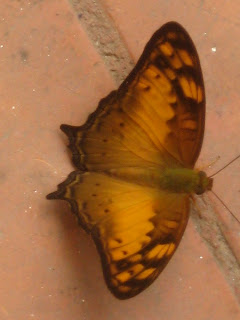Over the last few days I have come to accept something within myself, and that is that I am exhausted. Exhausted from attempting to gain respect and recognition from all those around me, and most of all from within myself.
I'm not sure how many white men ever realize their place of privilege in global society. And if you are a person deemed to be of low class or racial inferiority, your struggle to be heard, let alone recognized and respected are compounded with immeasurable challenges. As a woman, segregated because of class and race for the first 18 years of life, I feel an inherent understanding to the persistent struggles of the lowest caste group in Nepal (Dalit) and especially girls and women. Yet, even as a foreigner, I do not deny my privilege to be here and to be living and working amongst the people of a country considered one of the poorest on the planet. Yet, even amongst those I work alongside (other foreigners) my opinion, actions and voice are still challenged and made to feel inferior. Those old feelings of oppression which were felt as a child haunt my daily routine, and to be honest, have haunted me for the two decades in which I left my home village of marginalized existence.
It is only now that I have come to the realization, that the daily internal and external shouting above the imposed silence, has drained my energy and will to challenge the closed minds surrounding me. It has been my reflective soul-searching of the last several months that suddenly opened a door for me to acknowledge the reality of this daily battle and how my head, heart and soul are fractured because of it. It is time to not only be proud of myself outwardly in all I have become and done, but most importantly, inwardly in all fairness and honesty to myself. I bow now to let those around me to continue to live in self-imposed spaces of privilege and ignorance-of-self, while I will roam freely and with conviction in knowing my own good, my own identity, embracing my own spiritual peace.
I'm not sure how many white men ever realize their place of privilege in global society. And if you are a person deemed to be of low class or racial inferiority, your struggle to be heard, let alone recognized and respected are compounded with immeasurable challenges. As a woman, segregated because of class and race for the first 18 years of life, I feel an inherent understanding to the persistent struggles of the lowest caste group in Nepal (Dalit) and especially girls and women. Yet, even as a foreigner, I do not deny my privilege to be here and to be living and working amongst the people of a country considered one of the poorest on the planet. Yet, even amongst those I work alongside (other foreigners) my opinion, actions and voice are still challenged and made to feel inferior. Those old feelings of oppression which were felt as a child haunt my daily routine, and to be honest, have haunted me for the two decades in which I left my home village of marginalized existence.
It is only now that I have come to the realization, that the daily internal and external shouting above the imposed silence, has drained my energy and will to challenge the closed minds surrounding me. It has been my reflective soul-searching of the last several months that suddenly opened a door for me to acknowledge the reality of this daily battle and how my head, heart and soul are fractured because of it. It is time to not only be proud of myself outwardly in all I have become and done, but most importantly, inwardly in all fairness and honesty to myself. I bow now to let those around me to continue to live in self-imposed spaces of privilege and ignorance-of-self, while I will roam freely and with conviction in knowing my own good, my own identity, embracing my own spiritual peace.
































